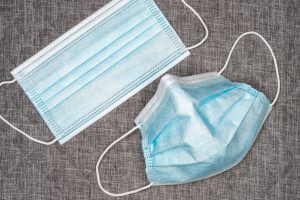Around 12,000 student nurses, midwives and paramedics support healthcare delivery in Scotland and have helped the NHS massively throughout the Covid-19 pandemic.
With Covid admissions rising at a rate 45% faster than they did last winter, combined with existing winter pressures, a significant demand has been placed on hospitals.
Students assist, through placement, the safe delivery of health and social care as services continue to respond to the pandemic.
It is an integral part of the ongoing work to respond to covid-19 and is greatly valued by the workforce.

Photo by Markus Winkler on Unsplash
3,000 nursing and midwifery students are starting placements this month with a further 7,000 students being placed across the service in February.
This is complemented by around 1,500 allied health professional students and more than 500 paramedic students who will also be involved in the delivery of care via supervised practice.
Health secretary Humza Yousaf said:
“As we go into a third year facing up to the challenges of COVID, we are fortunate to combine good quality learning attained by students as part of their supervised practice with the positive impact these students have on the delivery of safe, effective patient care and their ongoing support of our NHS.”
Student nurses and midwives entering Sottish Government-funded degree programmes will increase by 8.7% in 2022-23 which will be the 10th successive increase in recommended student numbers.
The total recommended intake of students after the increase will be 4837, doubling over the last decade.
Mental health nursing will increase to a recommended intake of 888, up 20% from the previous year and 146.7% over the course of the last ten student intakes.
The number of students beginning a paramedic service degree will also increase by 335 students bringing the total to 996, the third successive increase since the programmes launch in 2020.
Honours nursing student at Glasgow Caledonian University and mother-of-three Natalie Elliott, from Lanarkshire, was one of the first students to go out on supervised hospital placements in April 2020.
She commented:
“It was a real privilege to be part of the pandemic response and to feel that you’ve made that little bit of a difference. There was a sense of camaraderie on the wards and I really felt part of the team.”
